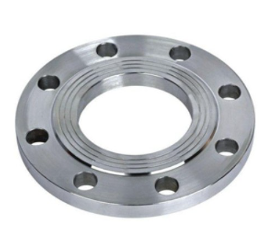24 volt electric actuator
Understanding 24 Volt Electric Actuators Operation, Applications, and Benefits
Electric actuators are essential components in various mechanical systems, offering automation and precision in movements crucial for numerous industries. Among the different types of electric actuators available, the 24-volt electric actuator stands out for its versatility and efficiency. This article delves into the functioning, applications, and advantages of using 24-volt electric actuators.
What is a 24 Volt Electric Actuator?
A 24-volt electric actuator is a device that converts electrical energy from a 24-volt source into mechanical motion. This actuator typically consists of an electric motor, a gearbox, and a mechanical component that performs the desired action, such as moving, lifting, or lowering an object. The compact design makes these actuators suitable for various applications where space is limited.
How Does It Work?
The operation of a 24-volt electric actuator involves a simple process. When powered, the electric motor spins, turning the gearbox connected to it. The gearbox reduces the motor’s speed while increasing torque, providing the necessary force to move the actuator's arm or shaft. Control signals can be sent from a remote system or microcontroller, allowing for precise control over the motion. Many models allow for variable speed and positioning, making them highly adaptable.
Applications of 24 Volt Electric Actuators
24 volt electric actuator

24-volt electric actuators are used in a myriad of industries, including
1. Automotive Industry Used for adjusting seats, windows, and other components in vehicles. 2. Home Automation Ideal for applications like automated window openers and motorized curtains where low voltage operation is advantageous. 3. Industrial Machinery Employed in assembly lines and manufacturing processes for tasks like material handling and positioning. 4. Agricultural Equipment Used in automatic irrigation systems or to operate machinery such as plows and seeders. 5. Medical Devices Vital in the operation of equipment such as stretchers and hospital beds that require precise movements.
Benefits of 24 Volt Electric Actuators
1. Safety The low voltage operation (24 volts) makes these actuators safer for use, particularly in environments where human interaction is frequent. 2. Efficiency 24-volt systems are often more energy-efficient compared to higher voltage systems, resulting in lower operational costs. 3. Installation Flexibility Their compact size and low weight make them easy to install in various settings, from tight spaces to large industrial setups. 4. Control Options Many 24-volt electric actuators are compatible with various control systems, including programmable logic controllers (PLCs) and remote control units, enabling efficient automation. 5. Durability and Reliability Designed to withstand harsh conditions, these actuators can operate for long periods with minimal maintenance, making them a reliable choice for critical applications.
Conclusion
The 24-volt electric actuator is a vital component across several industries, combining safety, efficiency, and adaptability. As technology advances and the demand for automation increases, the role of these actuators is likely to expand, offering more innovative solutions for control and motion. Whether you are an engineer, a business owner, or a developer, understanding the capabilities of 24-volt electric actuators can lead to better design choices and improved operational efficiency in your projects.
-
3 types of check valves maintenance tipsNewsAug.23,2025
-
Ball valves types with trunnion mounted designNewsAug.23,2025
-
Butterfly valve company production capabilitiesNewsAug.23,2025
-
Fisher globe valve technical specificationsNewsAug.23,2025
-
Types of gaskets for flanges selection guideNewsAug.23,2025
-
Wedge gate valve suppliers quality standardsNewsAug.23,2025
-
Breakthrough in Domestic Low Temperature Valve Technology in ChinaNewsAug.18,2025




